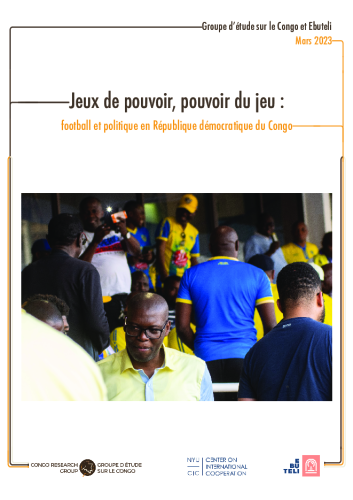Football is heavily influenced by politics in the Democratic Republic of the Congo.
For example, this past February, Congolese stadiums were not approved by the Confederation of African Football, except for the stadium of TP Mazembe, owned by opposition politician Moïse Katumbi, in Lubumbashi. Some soccer clubs, led by politicians close to the government and involved in continental competitions, have refused to play at TP Mazembe’s stadium, which belongs to a rival in both sports and politics.
A new report from the Congo Research Group (CRG) and Ebuteli, its research partner in the DRC, looks at the space for civic mobilization, with the study showing how politicians at the helm of Congolese soccer clubs use their position to enhance their reputation and seek gain at election time. The phenomenon is not limited to club presidents and extends to soccer players.
“Soccer, like other sectors of Congolese society, is marked by attempts by politicians to appropriate the passion of fans and fanatics for political or even electoral purposes,” confirms Joshua Walker, lead author of this report.
In fact, the political interference in the management of clubs serves both as a way to bring political popularity to the clubs and to achieve the objectives of the political power in place. As a result, politicians, as well as club managers, sometimes use resources allocated to a public institution to finance their soccer teams. This may explain the underperformance of these clubs once their presidents are no longer in power.
Finally, this study highlights the difference between political parties and soccer clubs on the issue of accountability. In the latter, supporters and fanatics can question the management of a club and demand a change in leadership. This is not usually the case for the former.
The Mukalenga Wa Bantu series questions forms of accountability in spaces of civic mobilization. The relationship between leaders and fans in soccer clubs, while imperfect, could serve as an example for political party organization.
Download the report:
- French
- English (forthcoming)
